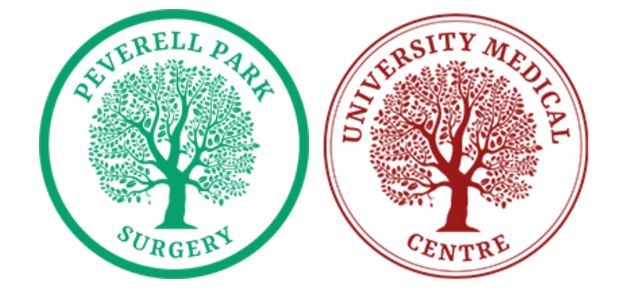Peverell Park Surgery & University Medical Centre
Peverell Park Surgery | 01752 766644 | administration.peverellpark@nhs.net
University Medical Centre | 01752 222341 | administration.umcpeverell@nhs.net
Sorry, we're currently closed. Please call NHS 111

Child Health
HANDi children and young people’s app
The app has been designed to help reduce the number of children and young people who visit the Emergency Department (ED), but need no treatment.
Advice for common childhood conditions
The app has been developed by paediatric consultants and provides access to home care plans, as well as GP and hospital clinical guidelines, for the most common childhood health care conditions:
- Diarrhoea and vomiting
- ‘Chesty baby’ illnesses, such as bronchiolitis, asthma and croup
- ‘Chesty child’ illnesses, such as wheezing and asthma
- High temperature
- Abdominal pain
- Common newborn problems
Vaccinations
This guide can help you understand the vaccines offered in the UK and when to have them. It also explains how they work and why they’re safe and important. There’s separate information on coronavirus (COVID-19) and travel vaccinations.
Fever in Children
A fever is a high temperature. As a general rule, in children, a temperature of over 38.0C (100.4F) is a fever. A high temperature is the body’s natural response to fighting infections like coughs and colds.
Many things can cause a high temperature in children, from common childhood illnesses like chickenpox and tonsillitis, to vaccinations.
View the NHS Fever in Children Page
Hand, Foot and Mouth Disease
Hand, foot and mouth disease is a viral infection that can affect young children.
The 1st signs of hand, foot and mouth disease can be:
- a sore throat
- a high temperature
- not wanting to eat
The 2nd stage usually starts a few days later and can include:
- mouth ulcers, which can be painful
- a raised rash of spots on the hands and feet, and sometimes the thighs and bottom
The rash of spots can look pink, red, or darker than the surrounding skin, depending on your skin tone.
The spots can turn into blisters, which might be grey or lighter than the surrounding skin and can be painful.
The symptoms are usually the same in adults and children, but can be worse in babies and children under 5.
View the NHS Hand-foot-and-mouth-disease page
Slapped Cheek Syndrome
Slapped cheek syndrome is a viral infection that’s most common in children, It usually causes a bright red rash to develop on the cheeks. Find out more
Chicken Pox
Chickenpox is a mild and common childhood illness that most children catch at some point. Find out more
Headlice
Head lice are tiny insects that live in human hair. They’re particularly common in children. Find out more
Further information
From warts and measles to chickenpox and tonsillitis, find out how to recognise some of the most common childhood conditions NHS – Childhood Illness

